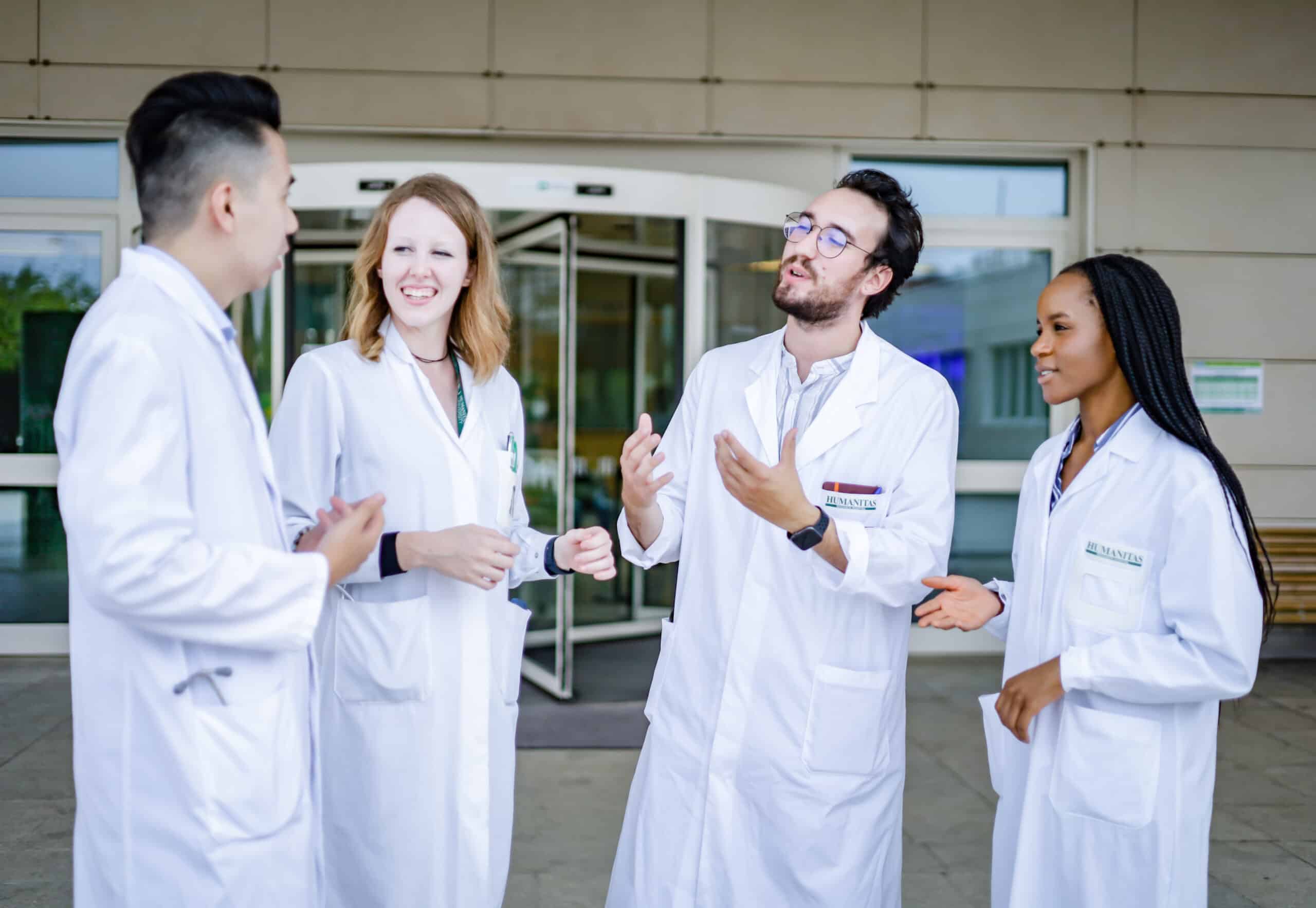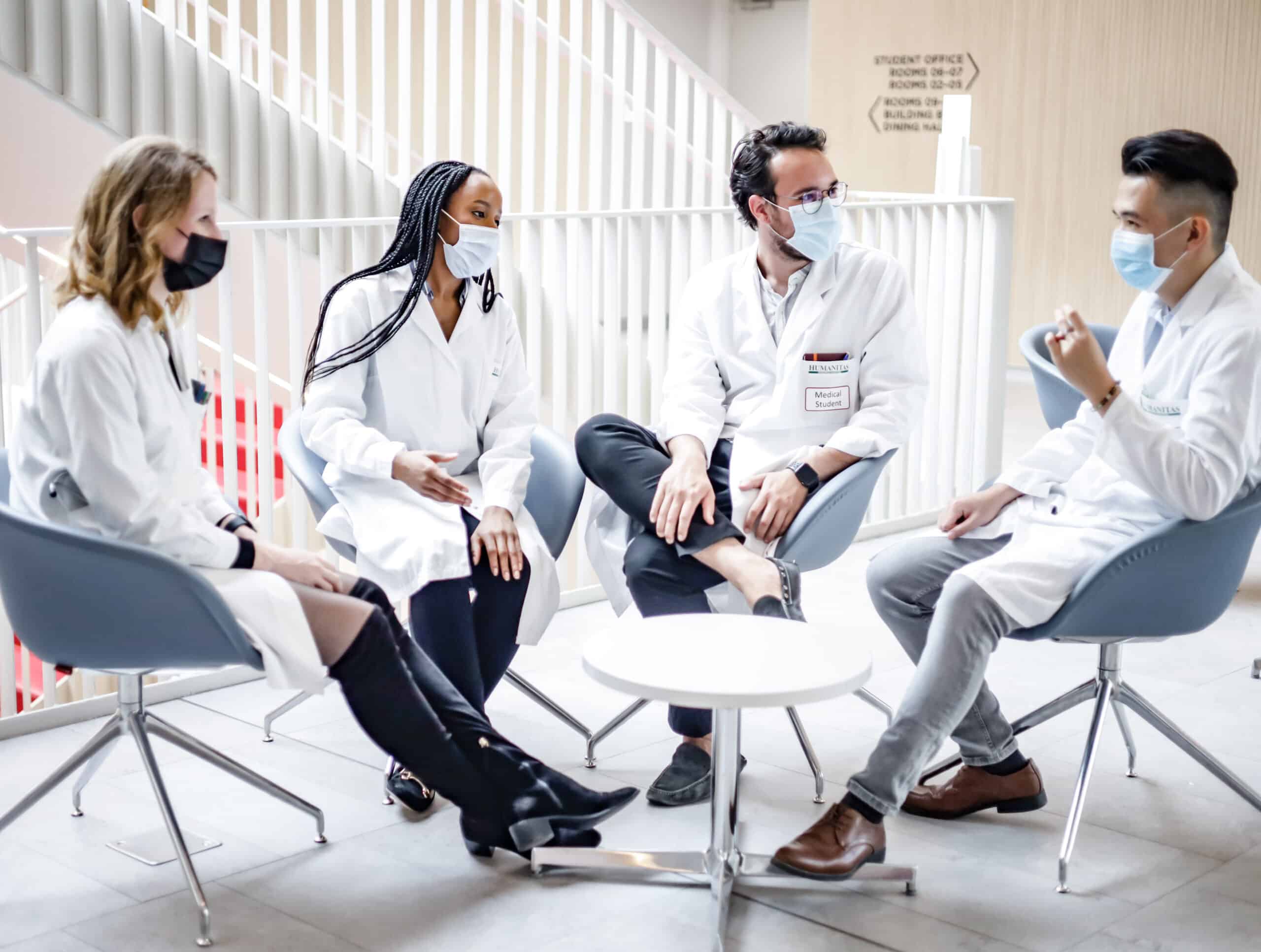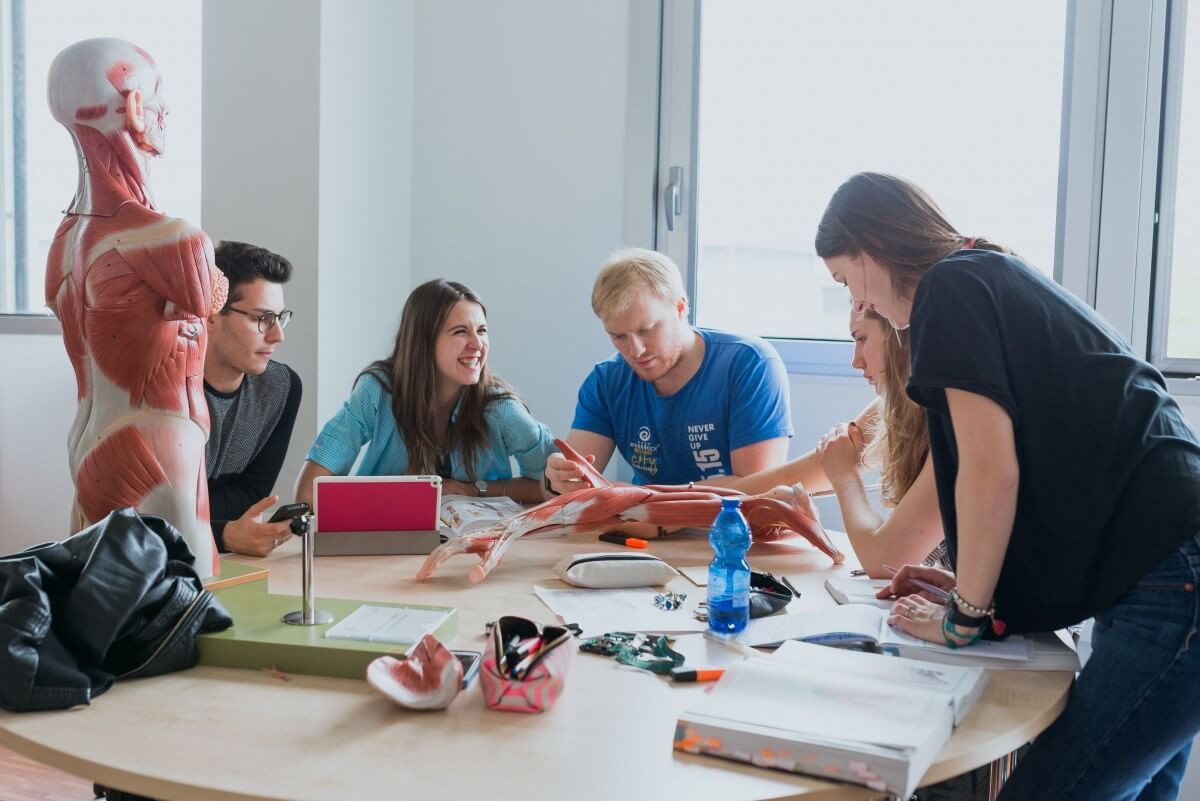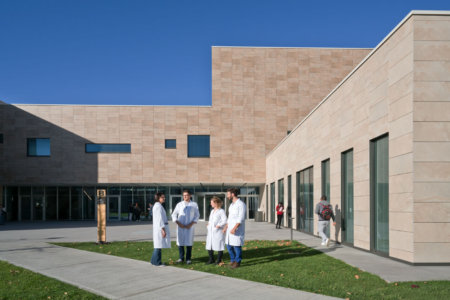With advances in technology and the emergence of new diseases over the past decade, the healthcare industry’s reliance on medical technology has seen an uptick. For example, AI is now being developed to detect and predict global infectious diseases using machine learning and tracking trends in data. The use of surgical robots in hospitals is another, with the industry predicted to value over US$22.8 billion by 2030.
In this, it’s crucial for future medical professionals to be trained according to the latest industry standards. Much of this involves putting theory into practice and direct exposure to the very environments they’re expected to work in.

At Humanitas University, students have the opportunity to put their theoretical knowledge into practice. Source: Humanitas University
Enter Humanitas University. Located in Milan, Italy, the life sciences institution is ideal for career-oriented individuals. Much of this has to do with its emphasis on active learning, in which theory and practice are carefully balanced. This is a result of the hands-on training students receive in the nearby Humanitas Hospital and Scientific Research Centre, which is fully integrated into the learning process.
Take the university’s MEDTEC School programme. This six-year dual degree programme in Medicine and Biomedical Engineering grounds students in a traditional medical education while managing the technological developments in the sector. Most importantly, it gives future doctors the skills and knowledge they need to service their patients in a more effective and accurate manner.
The MEDTEC School admission test takes place twice a year. For the 2023-24 intake, the tests will be held online on March 31, 2023 and April 21, 2023. The registration deadline for both sessions is set on March 23, 2023. Only your higher score of the two sessions will be considered.
Those in their second-to-last year of high school can take two more tests during their final year. The results will be valid for the admission ranking for the year you obtain your school leaving certificate.
Unlike other medical programmes in Europe, however, MEDTEC School — and Humanitas University’s general Medicine degree — sets itself apart by being the only institute in Milan that is entirely run in English. For those who need extra support, the Hunimed Language Centre offers a range of services for a diverse set of language needs.
It’s a tactic that works in attracting international talent. In fact, 40% of its students are international or from the wider European continent, making for a global community in the heart of one of the greatest cities in the region.
A unique and innovative dual degree
MEDTEC School is distinctive in many ways. For one, it’s the first six-year programme of its kind to adopt a biomedical engineering approach to basic science disciplines. Students receive an education that is tailored to the future of the medical field, in which precision medicine, big data, AI, nanotechnologies and more are frequently used to diagnose, treat and prevent diseases.
A major aspect of this is the integration of pre-clinical and clinical education with basic engineering subjects, which includes mathematical analysis, computer science, electrical engineering and mechanics. It’s an inherently multidisciplinary approach that gives future professionals the competencies to address complex issues about the applications of technology and information analytics in medicine.
Merged into this is practical, hands-on exposure gained through training in real-life medical scenarios, such as the Humanitas Hospital. For training in a safe, controlled environment, students have access to the Mario Luzzatto Simulation Centre — one of the largest and most technologically advanced in Europe. This 3,000-square-metre training centre uses state-of-the-art technology, advanced teaching methods and highly-realistic training facilities to deliver an unparalleled medical education.

MEDTEC School is the first six-year dual degree programme of its kind. Source: Humanitas University
Research plays a huge role in MEDTEC School — a venture students undertake with determination and great care. For example, 30 second-year students focused a project around the role played by genes in the coagulation process of the COVID-19 virus. They found that specific variants in certain genes led to an increased risk of developing severe COVID-19 symptoms — a groundbreaking finding that was published in the international Journal of Personalised Medicine.
Preparing for a global medical force
As pioneers of higher education in the life sciences, Humanitas University is committed to preparing its students for the effects of globalisation. To encourage this, students are actively encouraged to take part in various mobility programmes. They meet with different people, immerse themselves in a new culture and society, and enrich their personal development. Above all, they develop a global perspective on their industry — a vital part of preparing to enter the workforce.
Attracting talent — no matter where they come from — is Humanitas University’s top priority in admissions. As such, the institution has established a merit-based scholarship programme valued up to 20,000 euros. These are to be awarded for each academic year until the receiving students graduate. For others, a range of student loans starting from one’s second year are available, as well.

Attracting talent — no matter where they come from — is Humanitas University’s top priority in admissions. Source: Humanitas University
The combination of an excellent medical education with unwavering support for students produces unmistakably effective results. By the time students don their graduation caps, they have in-depth knowledge of advanced medical technologies and the ability to use these in designing personalised therapies for their patients. It’s a seamless pathway to a medical career that is not only filled with subject knowledge but up-to-date with the latest advances, as well.
To learn more about Humanitas University, click here. To join the MEDTEC School admission tests on March 31, 2023 and April 21, 2023, register by March 23, 2023.
Follow Humanitas University on Facebook, Instagram, and LinkedIn













